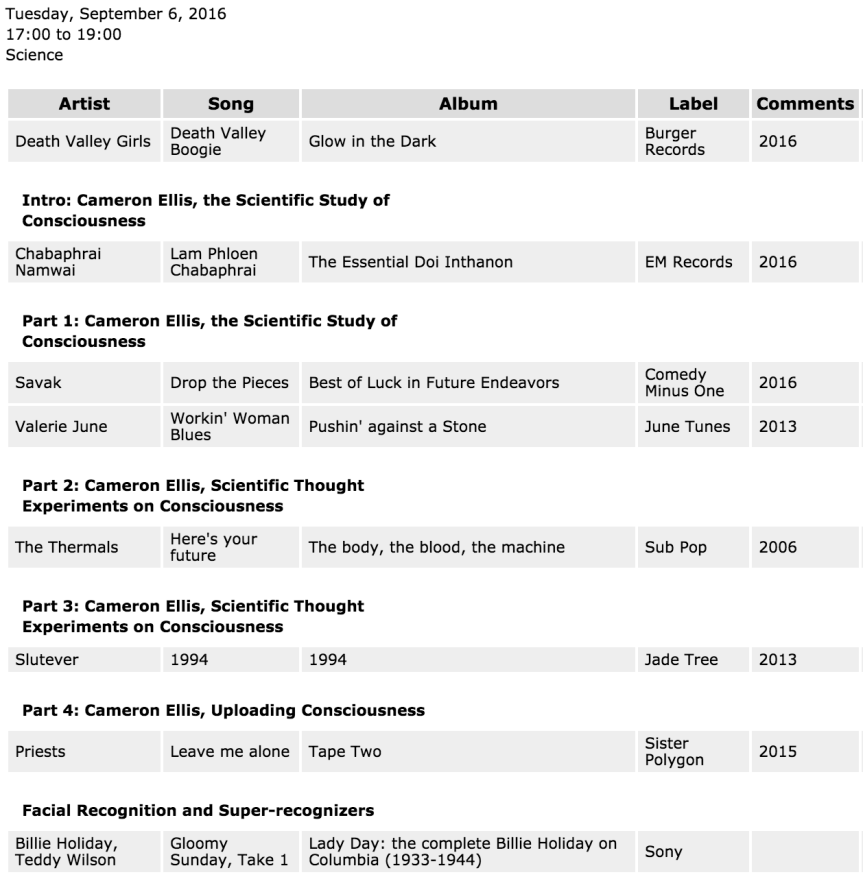In this episode, we brought Cameron Ellis back in the studio. Cameron is a graduate researcher in Cognitive Neuroscience in the Turk Browne lab here at Princeton, whose research focuses on consciousness and mental processing. We first talked to Cameron back in May (2016 – in that show he walked us through the nitty gritty of his research, as well as the fascinating history of the study of consciousness as a scientific discipline and the important research that has had a profound effect on peoples’ lives.
In this show we continued along the same vein, but this time pushing further in to the philosophy of consciousness, employing thought experiments like Mary’s room and the Chinese Room while still folding in some of the science pushing the field forward.
Here’s a short, incomplete list of the topics we discuss in the show:
- What does the term consciousness even mean? If we’re going to talk about it, we need to be able to define it. Or perhaps is the study of consciousness our attempt to, in fact, scramble for a definition?
- What is the idea of qualia? and why is it important to the discourse on consciousness? That brought us to the discussion of the Mary’s room (aka the Knowledge Argument) – roughly, does experience add anything if you already know everything on a topic – thought experiment and the Inverted Spectrum (is what you see as green what I see as green? how could we know?).
- Shortly after, we discussed the Chinese Room thought experiment (could a computer be conscious?), language learning, and Strong AI.
- Cameron described recent research out of UC Berkeley where scientists are able to use brain scans to decode thoughts, and what this means for the topics we’d been discussing.
- In the last part of the interview Cameron explains the concept of uploading consciousness and the Simulation Hypothesis (that our universe is actually a simulation within the computer of another universe – no but really though).
At the very end of the show, Brian jumps on the mic to discuss a recent New Yorker article on so-called super-recognizers, and a new squad of them in the London police force. Super recognizers are individuals who are incredibly skilled at facial recognition. This may sound strange, but we all know people (and may even be this way ourself) who are terrible at recognizing faces – people with something called face blindness – so it makes sense that there are individuals on the other end of the spectrum, those that are extremely attuned at recognizing an individual, even as they’re trawling through the thousands of faces in a CCTV video searching for that serial lawbreaker.
Listen in.



One thought on “9/6/16 Show feat. Cameron Ellis with More on the Scientific Study of Consciousness”